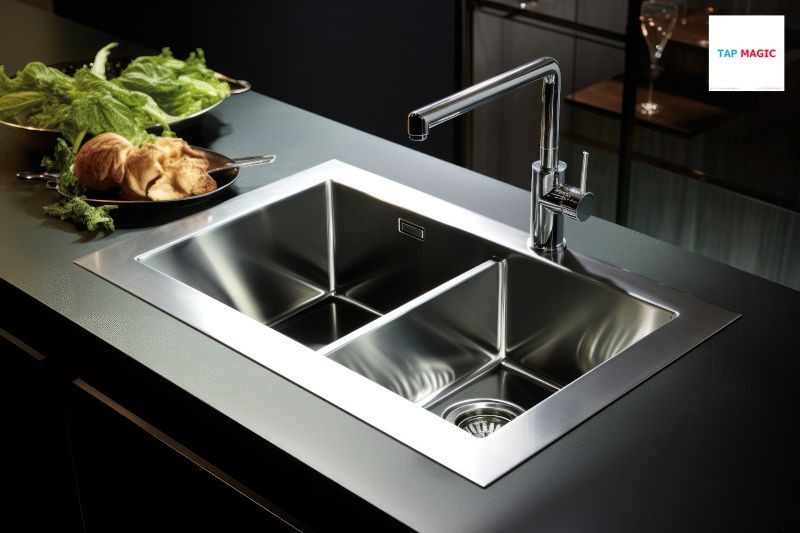
When selecting the best water filter for your home, the multitude of available options can be overwhelming. Understanding the various filtration technologies will help you make an informed decision. From sediment filtration and carbon filtration to ultraviolet disinfection and reverse osmosis, this guide offers a high-level overview of each technology to assist you in choosing the best mixer tap Ireland.
Sediment Filtration: The First Line of Defense
Sediment filtration is the most basic form of filtration, designed to remove large particles like sand, silt, and dirt from your water. This type of filtration can be easily installed for your mixer tap in Ireland. Often the first step in a multi-stage filtration system, sediment filters ensure that larger contaminants are removed before the water undergoes further purification. Think of sediment filtration as a screen door that keeps mosquitoes out while letting fresh air in. Here, the “mosquitoes” are larger particles like sand, silt, and dirt.
The effectiveness of sediment filters is measured by their micron ratings, which refer to the size of the filter’s pores. The smaller the micron rating, the finer the filtration. For example, a 5-micron filter can remove particles 10 times smaller than what the naked eye can see, ensuring a higher level of cleanliness.
Pleated Polyester Sediment Filters
These filters feature a pleated design, providing a larger surface area for filtration. The pleats capture a higher volume of particles, making them ideal for whole-house applications. Their greater surface area and durability enable them to handle higher flow rates, making them suitable for filtering all the water entering your home.
Melt-Blown Sediment Filters
Made from layers of melted polypropylene that are blown into a matrix of fibers, these filters provide depth filtration. The graded density captures particles throughout the filter’s depth, enhancing its capacity. These filters are effective for point-of-use applications due to their ability to trap finer particles closer to the surface.
Constructed by winding string-like material around a core, these filters are the most basic form of sediment filtration designed for every sink tap Ireland. They are the least expensive option, making them attractive for budget-conscious consumers. However, they are also the least effective at removing debris and have a shorter lifespan compared to pleated polyester and melt-blown filters.
Best Use: Applications where initial cost is a primary concern, but they may require more frequent replacements.
Activated carbon filters are highly effective at removing chemicals such as chlorine, chloramine, and volatile organic compounds (VOCs), while also improving the taste and odour of your water. Carbon filters work through adsorption, where contaminants are trapped within the carbon’s porous structure.
Carbon filtration is one of the most widely used methods for removing a broad spectrum of contaminants from water. This technology is particularly effective at improving water taste and odour by removing chemicals such as chlorine, chloramine, and VOCs. However, it’s essential to understand that not all carbon filters are created equal. The type of carbon used in the filter plays a significant role in its effectiveness.
Capabilities of Carbon Filtration
Carbon filtration works through adsorption, where contaminants are trapped within the porous structure of the carbon. This method is highly effective for a variety of applications.
Ultraviolet disinfection is a method used to kill or inactivate microorganisms in water by exposing them to UV light. This technology is highly effective for every mixer tap in Ireland when it comes to destroying bacteria, viruses, and other pathogens without adding chemicals to the water.
How UV Disinfection Works?
UV disinfection systems expose water to UV light, which penetrates the cells of microorganisms and disrupts their DNA, rendering them unable to reproduce and cause infection. This method is particularly useful for eliminating bacteria and viruses that can cause waterborne diseases.
Benefits of UV Disinfection
Reverse Osmosis: Comprehensive Filtration
Reverse osmosis (RO) is a comprehensive filtration method that removes a wide range of contaminants from water, including dissolved solids, heavy metals, and other impurities. RO systems use a semi-permeable membrane to filter out particles as small as ions.
In reverse osmosis, water is forced through a semi-permeable membrane under pressure. The membrane allows water molecules to pass through while trapping larger molecules and contaminants, effectively removing them from the water. Reverse Osmosis system are mostly available to companies that provide food waste solutions in Ireland.
Benefits of Reverse Osmosis
Conclusion
Choosing the right water filtration system for your sink tap Ireland depends on understanding the different technologies available and their respective benefits. Sediment filtration, carbon filtration, UV disinfection, and reverse osmosis each offer unique advantages that cater to various needs.